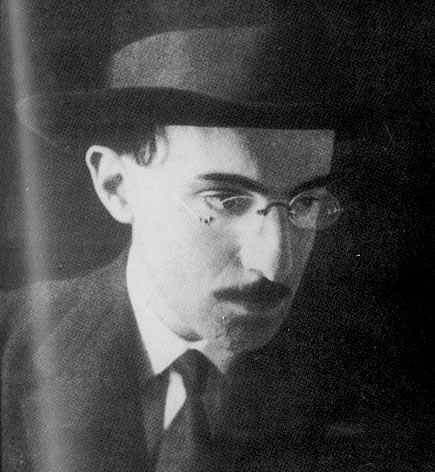<p>Sou um guardador de rebanhos.
O rebanho é os meus pensamentos
E os meus pensamentos são todos sensações.
Penso com os olhos e com os ouvidos
E com as mãos e os pés
E com o nariz e a boca.
Pensar uma flor é vê-la e cheirá-la
E comer um fruto é saber-lhe o sentido.</p><p>Por isso quando num dia de calor
Me sinto triste de gozá-lo tanto,
E me deito ao comprido na erva,
E fecho os olhos quentes,
Sinto todo o meu corpo deitado na realidade,
Sei a verdade e sou feliz.</p>
Alberto Caeiro (heteronym), O Guardador de Rebanhos ("The Keeper of Sheep"), IX — in A Little Larger Than the Entire Universe, trans. Richard Zenith (Penguin, 2006)
